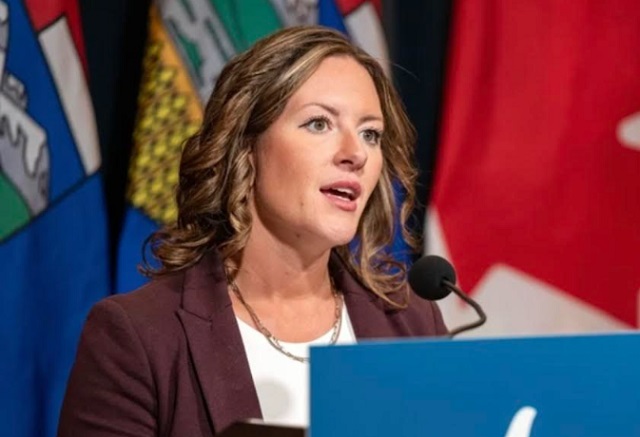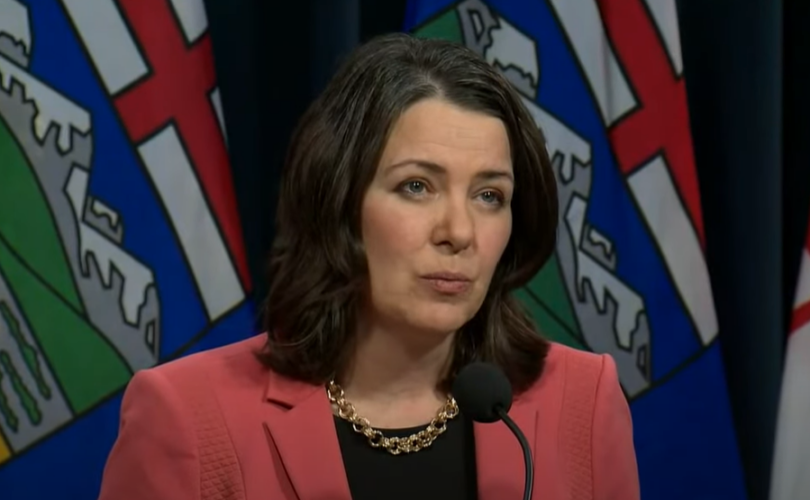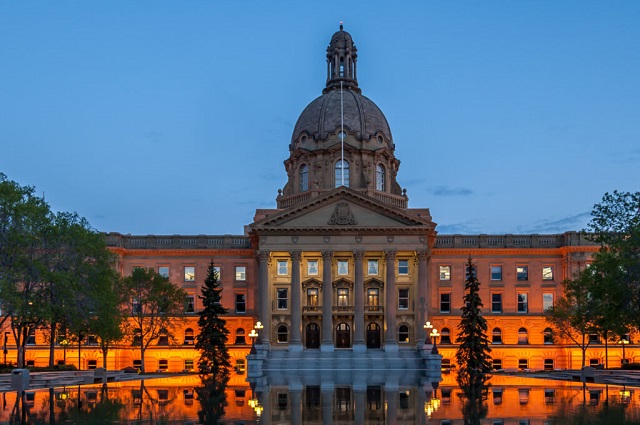Alberta
Emissions cap “will not be tolerated in Alberta” – Letter to Environment Minister Guilbeault

Dear Minister Steven Guilbeault,
The federal government’s draft Regulatory Framework to Cap Oil and Gas Sector Greenhouse Gas Emissions represents a de facto production cap on Alberta’s oil and gas sector. This cap is not realistic or effective, will not achieve its grandiose emissions targets, and will not be tolerated in Alberta.
Today, Alberta is efficiently and effectively regulating and driving emissions from all industrial sectors, including oil and gas, and has been doing so successfully for decades. Our technical submission outlines how your proposed oil and gas emissions cap will undercut this work, and the severe consequences that it will impose on Albertans and all Canadians.
In no way does Alberta’s technical submission alter our province’s position that the proposed emissions cap is unconstitutional. As set out in Section 92A of the Constitution Act, 1867, Alberta has exclusive jurisdiction to manage the rate of non-renewable natural resources production and operational aspects of their development in our province.
If implemented, this cap would have a devastating impact on the economies of Alberta and all of Canada. Analysis from the Conference Board of Canada shows that it would reduce Canada’s GDP by up to $1 trillion between 2030 and 2040 and create up to 151,000 lost jobs across Canada by 2030. Oil and gas production would be curtailed, tens of thousands could be out of work, and the economic impact would be felt from coast to coast.
We have identified an overwhelming number of flaws in your government’s proposed framework. For example, your assumed production forecasts – which form the basis of the cap – are from 2019. Alberta’s total oil and natural gas production has already risen past 2019 levels, and multiple forecasts project oil sands production to increase significantly by 2030. Similarly, the technologies needed to massively abate emissions in the oil and gas sector either don’t yet exist or aren’t being developed at the rate and scale that your modelling requires.
Many of these technologies and investments are supported by Alberta and will eventually deliver real and sustained reductions, but not by 2030. As well, our submission clearly demonstrates that:
• The proposed cap would violate Section 92A of the Constitution, and result in oil and gas production cuts and shut-ins in Alberta.
• It is based on a flawed regulatory framework and policy design that is ineffective, inefficient and will not produce the intended emission reductions.
• The proposed cap will negatively impact Alberta’s economy, as well as the economies of provinces and territories across the country, including the Canadian economy overall.
• It will undercut Canada’s competitiveness and drastically reduce investments in clean technologies like carbon capture, which are critical to meaningfully reducing emissions in the coming years.
• It is unnecessary and will undermine effective provincial-led decarbonizing approaches and initiatives already underway or proposed in Alberta and across Canada.
• It will lead to carbon leakage, with oil and gas production and greenhouse gas emissions increasing in other countries with less robust environmental and human rights standards.
Alberta is confident that the many of issues raised in this document are shared by other provinces and industry leaders, both within the oil and gas sector and beyond.
All greenhouse gas emissions have the same global impact, regardless of the sector or region in which they are produced. Instead of pursuing this unconstitutional cap, we are calling on your government to immediately halt further development and begin meaningful collaboration within established provincial regulatory regimes on oil and gas regulation and emissions reductions.
Alberta would welcome federal investment to help the oil and gas industry – and other industries – advance and adopt technology to reduce emissions to support our goals of carbon neutrality by 2050.
Alberta aspires to achieve a carbon neutral economy without compromising affordable, reliable, and secure energy for Alberta, Canada and the world. We know this relies on and requires investment to advance clean technology solutions.
We invite you to join us in implementing our Emissions Reduction and Energy Development Plan to achieve carbon neutrality while continuing the development of Alberta’s world-class natural energy resources for Canada and the world.
Sincerely,
Rebecca Schulz
Minister of Environment and Protected Areas
Alberta
Alberta government should eliminate corporate welfare to generate benefits for Albertans

From the Fraser Institute
By Spencer Gudewill and Tegan Hill
Last November, Premier Danielle Smith announced that her government will give up to $1.8 billion in subsidies to Dow Chemicals, which plans to expand a petrochemical project northeast of Edmonton. In other words, $1.8 billion in corporate welfare.
And this is just one example of corporate welfare paid for by Albertans.
According to a recent study published by the Fraser Institute, from 2007 to 2021, the latest year of available data, the Alberta government spent $31.0 billion (inflation-adjusted) on subsidies (a.k.a. corporate welfare) to select firms and businesses, purportedly to help Albertans. And this number excludes other forms of government handouts such as loan guarantees, direct investment and regulatory or tax privileges for particular firms and industries. So the total cost of corporate welfare in Alberta is likely much higher.
Why should Albertans care?
First off, there’s little evidence that corporate welfare generates widespread economic growth or jobs. In fact, evidence suggests the contrary—that subsidies result in a net loss to the economy by shifting resources to less productive sectors or locations (what economists call the “substitution effect”) and/or by keeping businesses alive that are otherwise economically unviable (i.e. “zombie companies”). This misallocation of resources leads to a less efficient, less productive and less prosperous Alberta.
And there are other costs to corporate welfare.
For example, between 2007 and 2019 (the latest year of pre-COVID data), every year on average the Alberta government spent 35 cents (out of every dollar of business income tax revenue it collected) on corporate welfare. Given that workers bear the burden of more than half of any business income tax indirectly through lower wages, if the government reduced business income taxes rather than spend money on corporate welfare, workers could benefit.
Moreover, Premier Smith failed in last month’s provincial budget to provide promised personal income tax relief and create a lower tax bracket for incomes below $60,000 to provide $760 in annual savings for Albertans (on average). But in 2019, after adjusting for inflation, the Alberta government spent $2.4 billion on corporate welfare—equivalent to $1,034 per tax filer. Clearly, instead of subsidizing select businesses, the Smith government could have kept its promise to lower personal income taxes.
Finally, there’s the Heritage Fund, which the Alberta government created almost 50 years ago to save a share of the province’s resource wealth for the future.
In her 2024 budget, Premier Smith earmarked $2.0 billion for the Heritage Fund this fiscal year—almost the exact amount spent on corporate welfare each year (on average) between 2007 and 2019. Put another way, the Alberta government could save twice as much in the Heritage Fund in 2024/25 if it ended corporate welfare, which would help Premier Smith keep her promise to build up the Heritage Fund to between $250 billion and $400 billion by 2050.
By eliminating corporate welfare, the Smith government can create fiscal room to reduce personal and business income taxes, or save more in the Heritage Fund. Any of these options will benefit Albertans far more than wasteful billion-dollar subsidies to favoured firms.
Authors:
Alberta
Official statement from Premier Danielle Smith and Energy Minister Brian Jean on the start-up of the Trans Mountain Pipeline

-

 Business2 days ago
Business2 days agoWEF panelist suggests COVID response accustomed people to the idea of CBDCs
-

 illegal immigration2 days ago
illegal immigration2 days agoFlight Docs Reveal Which Cities Are Receiving Migrants Under Biden’s Parole Program
-

 Fraser Institute2 days ago
Fraser Institute2 days agoCanada can solve its productivity ‘emergency’—we just need politicians on board
-

 International2 days ago
International2 days agoNYPD storms protest-occupied Columbia building, several arrested
-

 Addictions2 days ago
Addictions2 days agoBritish Columbia to re-criminalize hard drug use in public after massive policy failure
-

 Addictions18 hours ago
Addictions18 hours agoCity of Toronto asks Trudeau gov’t to decriminalize hard drugs despite policy’s failure in BC
-

 Alberta2 days ago
Alberta2 days agoProtecting the right to vote for Canadian citizens: Minister McIver
-

 Great Reset2 days ago
Great Reset2 days agoMiddle school girls who refused to compete against male banned from next track meet









